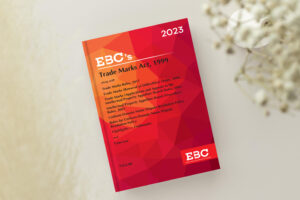Delhi High Court: In an application preferred by the plaintiff under Order 39 Rules 1 and 2 of the Civil Procedure Code, 1908 (‘CPC’), C. Hari Shankar, J.*, opined that while obtaining registration of such mark, the registrant had to be conscious that since the mark was a combination of ordinary English words, there was ever possibility that the similar mark was used by another person. Commonly used words, or a non-distinctive combination of commonly used words, could not be monopolised by any one person, so as to disentitle the rest of the word to its use. Thus, the Court opined that the plaintiff’s claim to exclusivity over the words “Institute of Directors” and the plaintiff’s prayer for a restraint against the defendants’ using the words “Directors Institute” could not prima facie sustain.
Background
In an instant case, Institute of Directors, the plaintiff had registered the trade marks ![]() , Institute of Directors and
, Institute of Directors and ![]() , under the Trade Marks Act, 1999 (‘the TM Act’). The registration of the plaintiff’s
, under the Trade Marks Act, 1999 (‘the TM Act’). The registration of the plaintiff’s ![]() device mark in Class 41, which pertained to arranging and conducting of conferences, seminars and workshops, organizing international conferences and training programs, was subjected to disclaimer which disentitled the plaintiff from claiming any exclusive right over the descriptive matter appearing on the label. Further, it was stated that the plaintiff used these marks for running an institute and for conducting events, networking and other associated activities.
device mark in Class 41, which pertained to arranging and conducting of conferences, seminars and workshops, organizing international conferences and training programs, was subjected to disclaimer which disentitled the plaintiff from claiming any exclusive right over the descriptive matter appearing on the label. Further, it was stated that the plaintiff used these marks for running an institute and for conducting events, networking and other associated activities.
Further, Defendant 1 applied for the registration of the mark ![]() for education, training, entertainment, sporting and cultural activities. The plaintiff submitted that their grievance was essentially against the textual component of the impugned mark which reads as “Directors’ Institute”. The plaintiff also submitted that, when seen together with the plaintiff’s mark ‘Institute of Directors’, the use of “Directors’ Institute” by the defendants was bound to result in confusion in the minds of the public, especially as the marks were used for providing similar and allied services.
for education, training, entertainment, sporting and cultural activities. The plaintiff submitted that their grievance was essentially against the textual component of the impugned mark which reads as “Directors’ Institute”. The plaintiff also submitted that, when seen together with the plaintiff’s mark ‘Institute of Directors’, the use of “Directors’ Institute” by the defendants was bound to result in confusion in the minds of the public, especially as the marks were used for providing similar and allied services.
Thus, the plaintiff filed the present application under Order 39 Rules 1 and 2 of the CPC.
Analysis, Law, and Decision
The Court noted that in the representation made by the plaintiff before the Trade Marks Registry, it was specifically stated that the words used in the mark were of common English language and also, were descriptive in nature which could not belong to any one proprietor. The Court opined that the plaintiff thereby admitted that the textual component of its device mark was descriptive and lacked the distinctive character.
The Court opined that words of ordinary English usage could not be monopolised, otherwise, the entire English language would be appropriated by few, which could not be permitted. Therefore, under Section 9(1)(a) of the TM Act, there was an absolute prohibition to registration of marks which inherently lacked distinctives and also, were incapable of distinguishing the goods or services of one person from another. The Court opined that only if the mark had attained secondary significance, by dint of continuous usage, then such mark could be registered. Otherwise, words of common English usage, even when put together to form a phrase of common English usage could not be registered.
The Court opined that by stating to the Trade Marks Registry that the words used in the device mark ![]() , were words of common English usage which could not be said to belong to any one proprietor, the plaintiff was prima facie disentitled from seeking an injunction against the use of the words “Directors’ Institute” by the defendants.
, were words of common English usage which could not be said to belong to any one proprietor, the plaintiff was prima facie disentitled from seeking an injunction against the use of the words “Directors’ Institute” by the defendants.
The Court opined that obtaining a registration in respect of mark which consisted of common English words was fraught with possibility of its own adverse sequelae, and while obtaining registration of such mark, the registrant had to be conscious that since the mark was a combination of ordinary English words, there was every possibility that the similar mark was used by another person. Commonly used words, or a non-distinctive combination of commonly used words, could not be monopolised by any one person, so as to disentitle the rest of the word to its use.
Thus, the Court opined that the plaintiff’s claim to exclusivity over the words “Institute of Directors” and the plaintiff’s prayer for a restraint against the defendants’ using the words “Directors Institute” could not prima facie sustain.
[Institute of Directors v. Worlddevcorp Technology and Business Solutions Pvt. Ltd., 2023 SCC OnLine Del 7841, decided on 11-12-2023]
*Judgment authored by- Justice C. Hari Shankar
Advocates who appeared in this case :
For the Plaintiff: Dinesh Jotwani, Harpreet Oberoi, Sourabhpreet Singh and Shivalika Midha, Advocates;
For the Defendants: Yashpal Singh, Saurabh Kansal, Manish Kumar and Raghav Vig, Advocates







